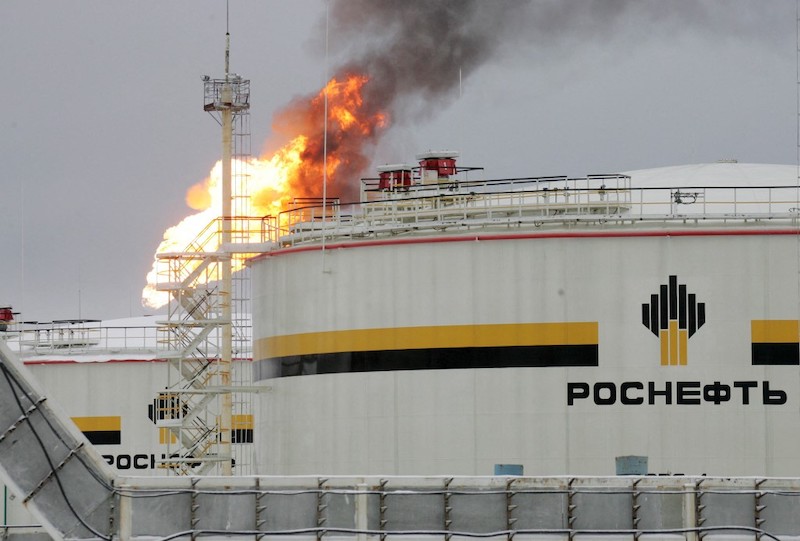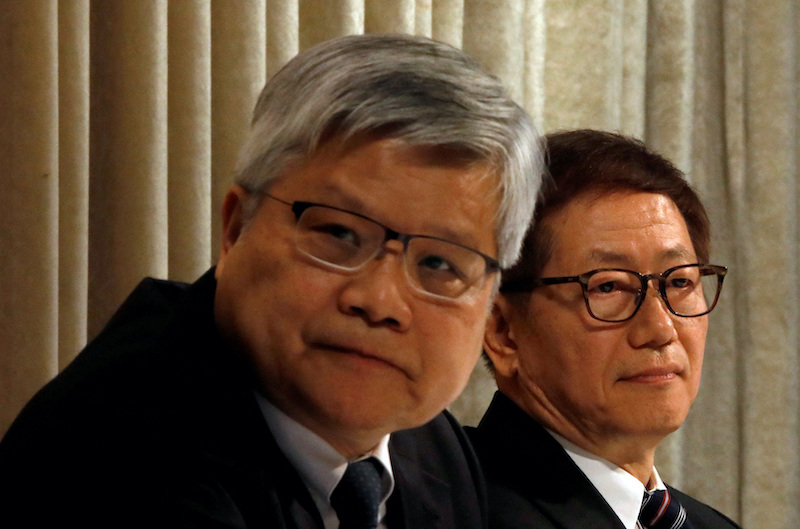China is the world’s biggest importer of oil and coal, and it has ramped up its purchases of both from Russia, data on Friday revealed.
After initially cutting back on Russian oil supplies to avoid US-led sanctions, China has quietly accelerated its purchases to a near-record 1.1 million barrels per day (bpd) in May, up from 750,000 bpd in the first quarter and 800,000 bpd in 2021.
And in April, it more than doubled its imports of Russian coking coal, taking advantage of a large discount compared to other sources.
Unipec, the trading arm of Asia’s top oil refiner Sinopec, is leading the oil purchases, along with Zhenhua Oil, a unit of China’s Norinco defence conglomerate, data show.
Livna Shipping, a Hong Kong-registered firm, has also recently emerged as a major shipper of Russian oil into China, the traders said.
China is also buying the oil at bargain prices, according to shipping data and oil traders.
ALSO SEE: US Won’t Object to China’s ‘Strategic’ Russia Oil Purchases
Coal Imports Soar
China brought in 1.71 million tonnes of coking coal from Russia last month, according to Customs data on Friday. That was more than double the 761,287 tonnes in the same period in 2021.
With many nations having stopped buying from Russia ahead of a European Union embargo due to be implemented in August, Russian cargoes are priced at a steep discount.
But Chinese traders have sought ways to settle payments with Russia even after Western countries blocked Russian banks’ access to the SWIFT international payment system.
“Chinese and Indian traders are snapping up Russian cargoes as Western countries scale back, even though the embargo has not officially taken effect yet,” a Beijing-based coal trader said.
A further 732,584 tonnes of Russian coal were loaded and headed to China in the first two weeks of May, data compiled by Mysteel showed.
Analysts previously estimated China could import 20 million tonnes more Russian coal in 2022 than last year.
The customs data on Friday also showed shipments from top supplier Indonesia, mainly thermal coal, reached 15.95 million tonnes in April, up from 11.74 million tonnes a year before.
China’s total coal imports in April jumped 43% versus the prior month, driven by panic buying over concerns of supply disruptions stemming from Russia’s invasion of Ukraine.
Arrivals from Australia reached 129,142 tonnes in April, the data also showed, with the fuel clearing customs after sitting in Chinese ports since late 2020 due to an unofficial ban on Australian coal.
EU Finalising Ban on Russian Oil
The move by the world’s biggest oil importer comes a month after it initially cut back on Russian supplies, for fear of appearing to openly support Moscow and potentially expose its state oil giants to sanctions.
Sinopec declined to comment. Zhenhua and Livna did not respond to requests for comment.
The firms are filling the hole left by western buyers after Russia’s invasion of Ukraine, which prompted the US, UK and some other key oil buyers to ban imports of Russian oil.
The European Union is finalising a further round of sanctions, including a ban on Russian oil purchases.
Vitol and Trafigura, two of the world’s biggest commodity traders, phased out purchases from Rosneft, Russia’s biggest oil producer, ahead of an EU rule that came into effect on May 15 barring purchases unless “strictly necessary” to secure the EU’s energy needs.
- Reuters, with additional editing by George Russell
READ MORE:
Japan Says It Will Take Time To Cut Use of Russian Oil
Saudi Arabia Back as China’s Top Crude Oil Supplier
India May Buy Discounted Russian Oil, Officials Say
























